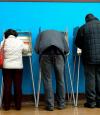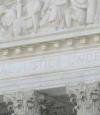Site Search
Copyright © 2024 Highbrow Magazine
by Tara Taghizadeh
John Lennon once said: Life is what happens while you are busy making other plans. And Adios Buenos Aires captures this sentiment perfectly. As Julio dreams of abandoning Buenos Aires in favor of a fresh start, he is forced to reckon with the people and events that hold him back.
Read more...by Sandra Bertrand
The groundbreaking exhibition, The Harlem Renaissance and Transatlantic Modernism, explores the far-reaching and everyday ways in which Black artists portrayed modern life. Through some 160 works of painting, sculpture, photography, film, and ephemera, the new Black culture was taking shape.
Read more...






























































































































































































































































































































Copyright © 2024 Highbrow Magazine







